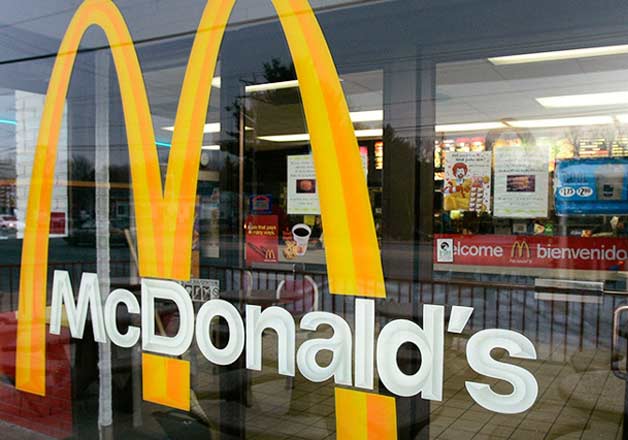
New York: McDonald's sales have been sputtering for more than two years and the company seems trapped in a cycle of bad headlines that likely won't end soon.
Its quarterly earnings results on Wednesday aren't expected to be pretty either, and there's a chance its dominance will continue to wane as newer players keep coming onto the scene.
But don't write the obituary just yet. McDonald's has many strengths that the rivals biting at its heels can only envy, including Ronald McDonald's worldwide recognition. The Golden Arches will need to put them to good use to remain the world's largest restaurant chain.
Here are six reasons why McDonald's is nowhere close to death's door for now.
MASSIVE REACH
McDonald's has more than 14,300 locations in the U.S. and that ubiquity continues to make it a default option for many. Burrito chain Chipotle is in growth mode but still only a fraction of that size, with around 1,800 locations. (Shake Shack, whose stock offering earlier this year garnered lots of attention, has fewer than 40.)
Because of its recent struggles, McDonald's plans to slow its growth to its lowest level in five years. But "slow" is relative: It still plans to add 600 to 700 restaurants around the world this year, on top of the more than 36,200 it already has.
Chipotle said it plans to open up to 205 new stores this year, mostly in the U.S.
MARKETING POWER
McDonald's has enormous marketing muscle, in large part because its franchisees are required to contribute at least 4 percent of their sales to advertising.
Based on the $31.1 billion in sales U.S. franchisees saw last year, that would translate to at least $1.24 billion in advertising money.
That huge bucket of money is split in two ways. Some goes to national advertising and focuses on burnishing the brand. The rest goes to regional advertising and focuses more on promotions to drive customers to stores.
Advertising doesn't have to be expensive to be effective, of course. But McDonald's deep pockets give it a clear advantage.

PRINTING MONEY
The recent sales decline in the U.S. is squeezing franchisees, who still have to pay for fixed costs like labor and electricity.
View galleryWhy McDonald's is still a powerhouse, despite trou …
FILE - This Thursday, Jan. 15, 2015, file photo, shows a McDonald's fast food restaurant sign in Ch …
But McDonald's restaurants continue to generate a lot more cash than their peers. In 2014, the average McDonald's restaurant raked in $2.5 million in sales, according to industry tracker Technomic. Wendy's restaurants pulled in an average of $1.6 million, while Burger King pulled in $1.2 million.
A big reason for the difference: the popularity of McDonald's breakfast.
Average annual sales for Shake Shack are higher at $4.6 million, Technomic said. That's in part because Shake Shack is concentrated in New York City, where volumes tend to be higher. The average Chipotle generates roughly the same sales volume as McDonald's even without breakfast, in part because of its fast-moving line and higher prices.
UNLOCKING BREAKFAST
Fans of McDonald's breakfast have long called on the chain to offer it past 10:30 a.m. McDonald's is finally giving the idea a serious try with a test of an all-day breakfast menu in San Diego.
It's just one way McDonald's might bring more customers into its stores and may signal the company's willingness to take bigger risks.
Big companies tend to be cautious about change, and McDonald's in particular is known for its methodical decision-making. But executives may pick up the pace to avoid becoming outdated.
NEW LEADERSHIP
McDonald's CEO Steve Easterbrook stepped into his role just last month and said he wants to make McDonald's a "modern, progressive burger company." In a meet-and-greet with analysts, he also referred to himself as an "internal activist," according to Sara Senatore, a Bernstein analyst.
Another new executive is Mike Andres, who became president of the U.S. division in October. He started as a manager for his family-owned McDonald's, and has served in a variety of leadership roles at the company.
(Side note: Andres' father was a pilot for Ray Kroc, who built McDonald's into a fast-food giant.)
MCDONALD'S HAS BEEN HERE BEFORE
The troubles McDonald's is facing are partly the result of a shifting industry, with many smaller players posing a challenge to the big guys. If that trend keeps up, McDonald's may not be able to save itself.
At the same time, it's easy to forget that McDonald's has had rough patches before — and pulled out of them.
Consider the expanded menu and focus on value that former CEO Jim Skinner used to turn around business. It isn't an ancient example; Skinner's tenure was from 2004 to 2012, the last few years of which were some of McDonald's strongest.



















